Graham Reid | | 3 min read
Love: Andmoreagain

When the British rock magazine Mojo published a special supplement on psychedelic rock back in February 2005, among the albums noted were all the usual suspects: Electric Ladyland by Jimi Hendrix took out the top spot and further down were Pink Floyd’s Piper at the Gates of Dawn, the Beatles’ Sgt Pepper’s and albums by the Mothers of Invention, Jefferson Airplane, Country Joe and the Fish, Traffic, the Doors and so on.
The surprising choice in this list came in second behind Hendrix, and above the Beatles at number 5.
It was the sometimes dark Forever Changes by Love who came from, not the powerspot of hippies’n’love beads city of San Francisco or day-glo London, but the decidedly un-psychedelic city of Los Angeles where bands like the moody Doors were more familiar.
As Mojo noted, Forever Changes also didn’t conform to what was expected from a “psychedelic album”: there were no backwards guitars, phasing, sitars or long solos. Certainly there were strings, multi-tracked voices, driving and urgent acid rock . . . .
But mostly it sounded like a collection of superb, if very different, acoustic guitar-based singles threaded together in an acid-inspired suite. In that sense it could have been released last week and would still have sounded fresh, vital and relevant.
Mainman Arthur Lee wasn’t stoned out of his gourd as many others of the period were, but clearly focused and using the enhanced consciousness that LSD brought to take scalpel-like and slightly misanthropic slices at important topics such as racism, the Establishment and contemporary life. And there were a lot of acoustic guitar songs.
This was quite some leap from Love’s classic single of the previous year, a brutal and lascivious garage band take on the Bacharach-David song My Little Red Book.
As Dave Marsh noted of that single, “Lee yowls on about losing his girlfriend and getting out his little red book . . . and chasing around the town like a dog on heat”.
Well, for Forever Changes the heat is turned down and the inner light turned on: the album bristles with musical ideas and clever arrangements for horns and strings, and fulfilled the promise hinted at on their self-titled debut album of 1966 and the even better Da Capo of earlier in 67 which had the first side-long song on a rock album.
Lee, born and raised in Memphis, was -- if nothing else -- musically ambitious.
But he was also plenty of “else“: he had begun by playing surf music and soul ballads in the pre-Beatle years; had the look of a knowing Hendrix by the time Love were peaking in LA; maintained a kind of Dylanesque emotional distance in some of his delivery (Bummer in the Summer on Forever Changes which looked back to garage band chord changes); and his later acid-casualty status perhaps enhances in retrospect the sometimes schizophrenic nature of Da Capo and Forever Changes.
Love/Lee music could by turns be sublime and light in a folksy manner, or acerbic and cutting while being driven by taut drumming and cut across by Lee’s guitar. And then sometimes acerbic and suspiciously cynical in a light and folksy manner (The Red Telephone).
A recent encyclopaedia of rock said of Forever Changes it was “a psychedelic time capsule with a sublime mix of textures that steadfastly refuses to date. Demented, essential.”
Yet despite its current stature as a landmark album -- psychedelic or otherwise -- it tanked in the States on release in December 1967 (it reached 24 in the UK) and Lee was disillusioned, retreated to the band house in Hollywood (which had previously been a horror movie set) and the group began to break up. He was the only remaining member for the follow-up album a year later.
Listened to today Forever Changes seems only a tangentially “psychedelic album” because we have narrowed the parameters of the genre to sky-scaling guitar solos and lengthy workouts.
But as with Moby Grape’s impressive debut, Country Joe’s Electric Music for the Mind and Body and Hendrix’s debut album, psychedelic music could court country-rock, the blues, pop music, mariachi band trumpets, stabbing string arrangements and much more.
Forever Changes was more than just a high water mark for Love and Lee (whose spinning out in later years made for better headlines than music), it was and remains an album of lyrical and musical depth, which could be seductively ecstatic (Alone Again Or), mad (A House is Not a Motel), politically pointed (Live and Let Live) and just plain wonderful.
And because of that, it stands beyond the limitations of other albums of its period.
As that Mojo special noted: “Forever Changes contains all the psychological and textual depth you could wish for, backed up by limber, expressive music and arrangements that augment the lyrics’ emotional impact. Released at the time that the emotional and social states that it described were happening, it lifted the lid on the hippie id, exposing the darker side of an era that was on the point of passing.”
By coincidence the month prior to its release there had been a mock funeral in San Francisco to mark the death of Hippie, an imaginary character killed by commercialisation of the SF scene. Mass demonstrations against the war in Vietnam, the pivotal year of 1968 with its political assassinations and riots, the Stones’ Altamont concert, Charles Manson’s murderous rampage, Richard Nixon and the vinegar taste of the early Seventies were coming down fast.
Arthur Lee was one of the few musicians within the acid-soaked world of love and peace who could articulate disillusion as much as the promise the era had offered.
And he did both, and more, on Forever Changes.
.
These Essential Elsewhere pages deliberately point to albums which you might not have thought of, or have even heard . . .
Jump in.
The deep end won't be out of your depth . . .

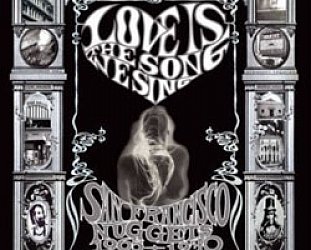
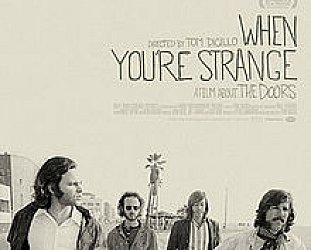
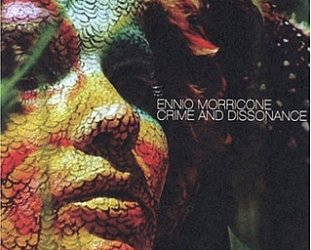
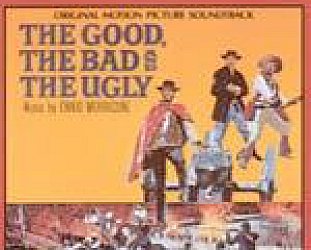
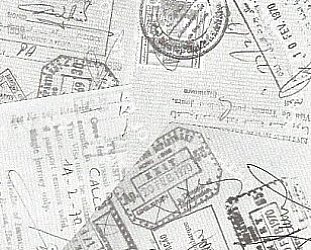

Gavin Hancock - Dec 8, 2011
This album is the only so-called '60s "Classic" I've yet heard that doesn't grab me. Maybe you had to be there.
SavePeter Huitson - Jul 30, 2013
Back in the 70's and 80's when I was searching for music by The Love Affair (great British band), I'd regularly come across Love LP's and CD's. I used to get frustrated as it was Love Affair I was looking for and never even gave Love a listen. Was I in for a shock when one night I saw a reformed Love performing on Jools Holland. The band just blew me away! I now have all their albums. Great that Arthur Lee made a late come back so we have concert footage of him in action before his sad passing.
Savepost a comment